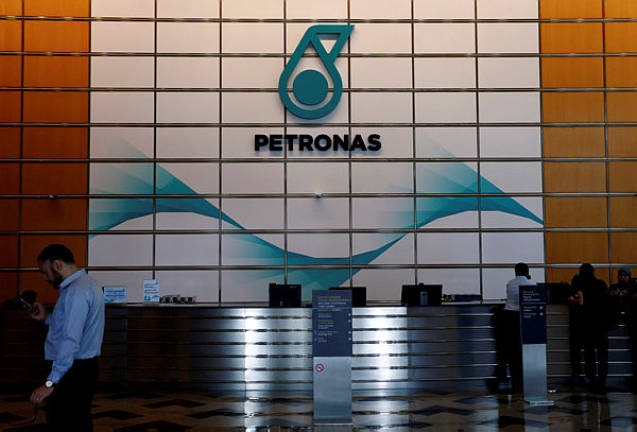Fitch Ratings has downgraded Malaysia-based Petroliam Nasional Berhad (PETRONAS)’s Long-Term Foreign- and Local-Currency Issuer Default Ratings (IDRs) to ‘BBB+’ from ‘A-‘. The Outlook is Stable. The rating action follows the downgrade of Malaysia’s IDR to ‘BBB+’ from ‘A-‘ on 4 December 2020, with the Outlook at Stable.
Fitch has also affirmed PETRONAS’ Short-Term Foreign-Currency IDR at ‘F1’. At the same time, the rating agency downgraded the ratings on its foreign-currency senior unsecured debt and debt issued by PETRONAS Capital Limited and guaranteed by PETRONAS to ‘BBB+’ from ‘A-‘.
PETRONAS’s IDRs continue to be capped by Malaysia’s IDRs, as per Fitch’s Government-Related Entities Rating Criteria. PETRONAS’s Standalone Credit Profile (SCP), assessed by Fitch at ‘aa-‘, is stronger than that of its owner, reflecting the company’s very strong financial profile, large scale and integrated oil and gas operations.
PETRONAS accounted for more than 15% of the Malaysian government’s revenue over the last five years. Fitch will equalise its ratings with those of the sovereign even if its SCP falls below the sovereign rating so long as the company sustainably generates more than 10% of government revenue, in line with the criteria for rating government-related entities (GREs).
Fitch notes the oil gas giants SCP remains comfortable as it expects the company to maintain its strong financial profile despite the economic downturn and disruptions following the COVID-19 pandemic. Its estimated the company’s upstream volumes to fall by about 4% during 2020 due to weaker demand. LNG, downstream petroleum and petrochemical sales volumes to fall by 2%-3% in 2020. Gradual recovery is expected to support revival in demand for gas and petroleum products with volumes returning to pre-pandemic levels over the next 12-18 months, although downside risks remain.
Fitch sees PETRONAS’s status, ownership and control and support record by the sovereign as ‘Strong’. The government’s 100% ownership gives it significant influence over national company, although it is less involved directly in the operations, financing, and investments, driving the ‘Strong’ assessment.
On socio-political implications of a default is seen as ‘Very Strong’, as it would severely disrupt Malaysia’s energy security. A default would jeopardise its ability to undertake upstream oil and gas production, refining, retail distribution of fuel, and gas supply to the power and other industries. The financial implications of a default are ‘Very Strong’ because investors see PETRONAS bonds as a proxy for sovereign bonds as the company accounts for a large share of government revenue.
Fitch notes that PETRONAS’s strong business profile reflects its position as one of the world’s leading fully integrated oil and gas producers with diverse operations across fuels, regions, and business lines, both upstream and downstream. The company has crude oil and gas producing assets in the Asia-Pacific, Central Asia, Middle East, Africa and Canada, making it a leading global LNG supplier.
Proved reserves of 5.85 billion barrels of oil equivalent (boe) translate into adequate proved reserve life of over 9 years based on 2019 production (1.75 million boe per day (boe/d)). It has been in a net cash position since 2006, and has the lowest through-the-cycle leverage and highest interest-coverage ratio among ‘AA-‘ rated peers. We expect PETRONAS to maintain its strong financial profile with a sustained, but narrowing, net cash position.
Due to COVID-19 Impact, EBITDA is expected to fall by about 40% in 2020 from MYR87.4 billion in 2019, hit by weaker demand, low oil and gas prices and weak product spreads. Consequently, its free cash flow (FCF) deficit after capex and dividends will expand in 2020, though a plan to cut 2020 capex should cushion the impact. Reported EBITDA fell by almost 40% yoy to MYR43.4 billion during 9M20 with domestic gas sales declining by 14% to 2,488 million standard cubic feet per day (mmscfd) while upstream volumes fell by 3% to 1.62 million boe/d.
Upstream to dominate capex with MYR45 billion-50 billion a year to be invested driven mainly by upstream investments, which are critical to arrest falling production at domestic oil and gas fields and drive growth overseas. PETRONAS plans to increase investments in new energy projects, primarily renewables, to reduce its carbon footprint, but these will remain relatively small over the next two years.
PETRONAS’s is expected to reduce dividend payment in 2021, following weaker earnings on the disruptions from the coronavirus in the current year. The government has allowed PETRONAS to cut dividends to maintain its financial profile in previous downturns. However, Fitch estimates dividends will rise to around MYR24 billion-26 billion over 2022-2023, subject to crude oil prices, investments and the impact on its financial profile.









